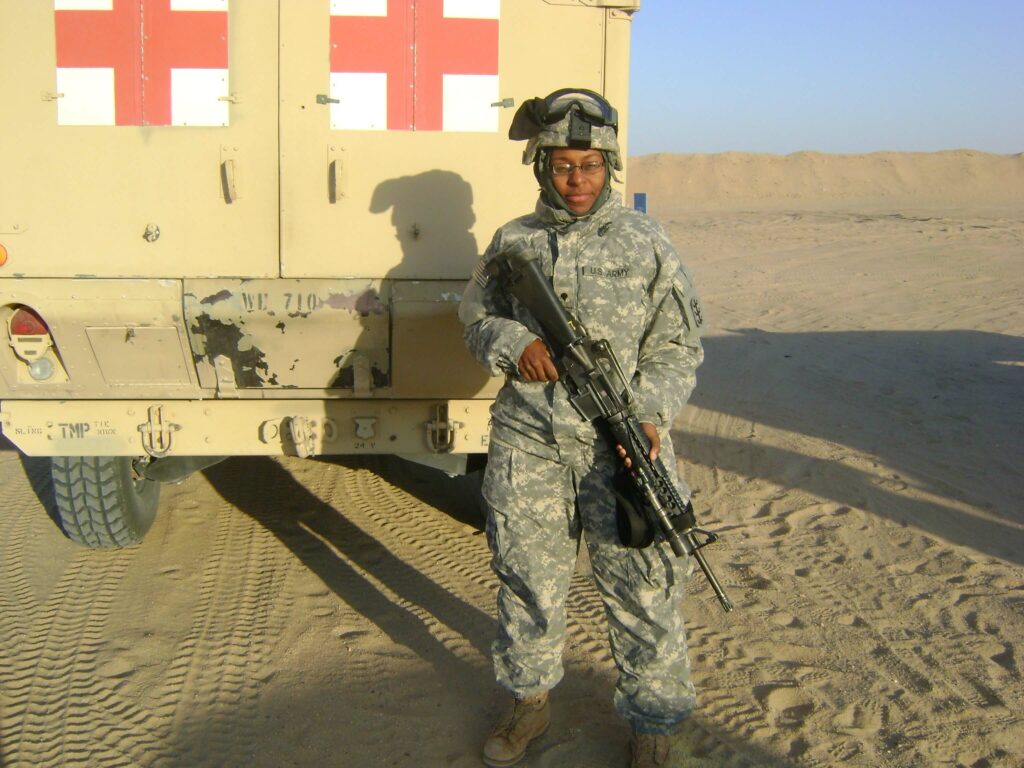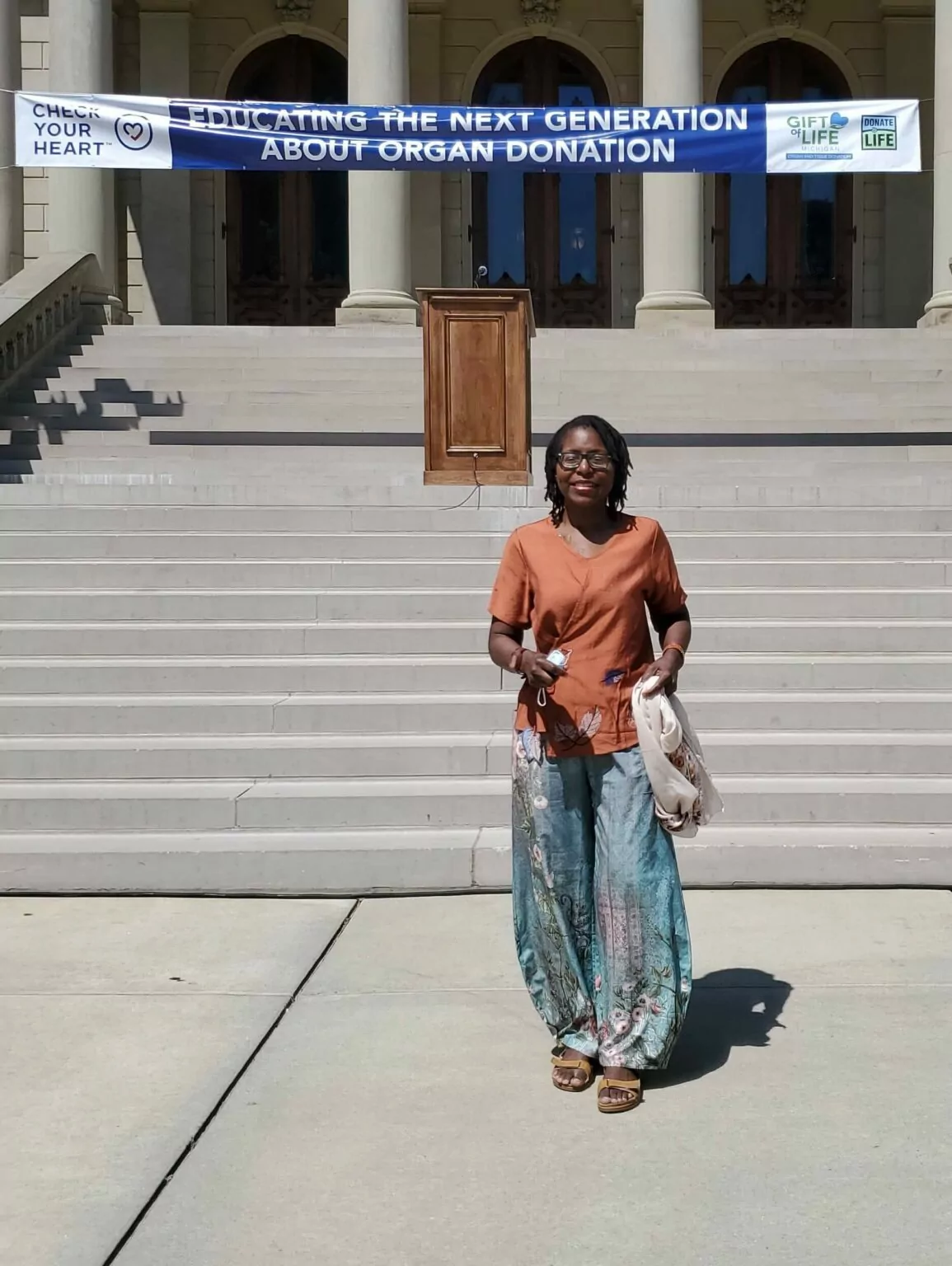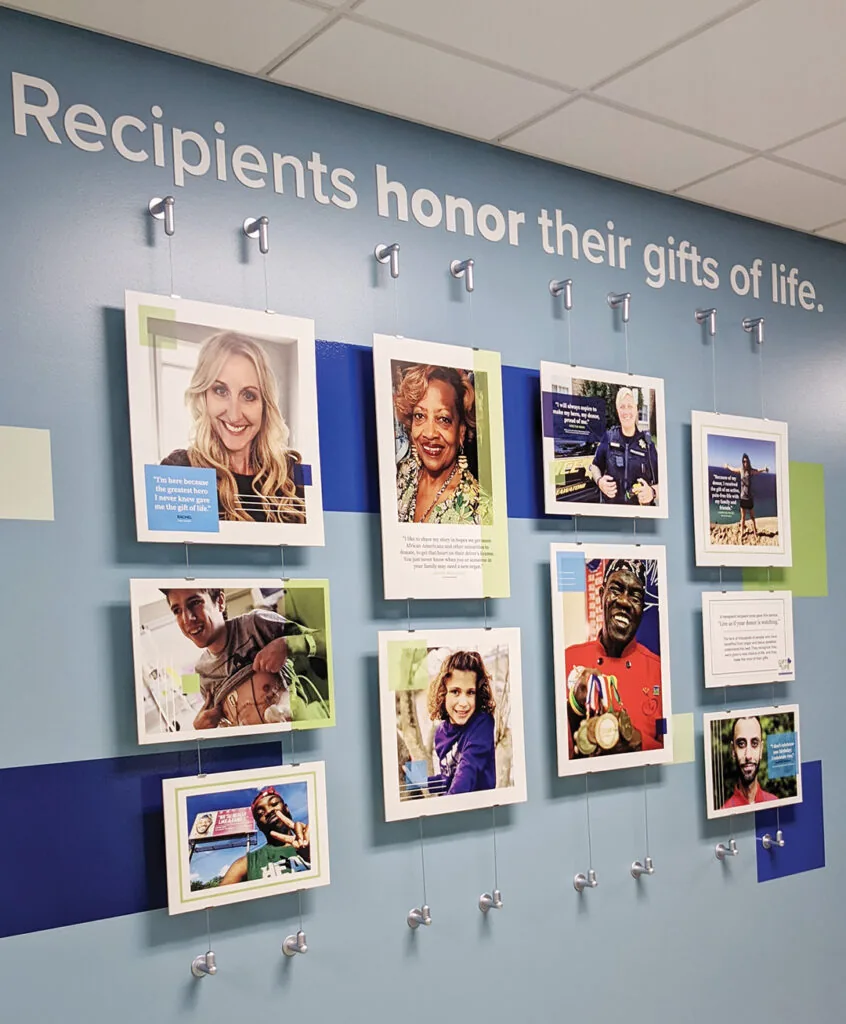As an Army sergeant and medic, Lisa Haney was trained to save lives. Then her own life was saved during the military discharge process in 2017.
 After serving nine years, she submitted her paperwork and scheduled her physical, which included an EKG.
After serving nine years, she submitted her paperwork and scheduled her physical, which included an EKG.
“I felt fine,” Lisa said. “When they said I had to go to Fort Sam Houston to see a specialist, I asked what for?”
Her EKG revealed that her heart rate was extremely low, and she was diagnosed with sick sinus syndrome.
The condition affects the heart’s natural pacemaker, which controls the heartbeat. It’s relatively uncommon and many people who are diagnosed eventually need a pacemaker. Lisa needed one not long after her discharge exam.
After the surgery, she returned home to Detroit with her family, enrolled at جامعة واين ستيت, and began her life as a civilian. But Lisa’s health was never the same.
Getting a good breath and walking six feet became a challenge. Lisa spent years in and out of the hospital.
“One day I could barely walk, could barely move my feet,” she said. “My cousin took me to the hospital, and they tried everything, including shocking my heart. Nothing worked. My heart was so bad that they didn’t want to do anything else, without a transplant.”
In May 2023, she entered the transplant program at Henry Ford Hospital. Her family including her mom, aunt, uncles, nieces, and cousins, were all there to learn about her treatment and educate themselves on her diagnosis.
“My cousin Concetta became my health expert,” Lisa said. “My family went through so much that I didn’t know about at that time.”
News that a donor’s heart was a match for Lisa came in August after three months on the waiting list.
“When I got the call that they had a donor heart I just cried and cried and called my cousin and told her the good news,” she said.
Concetta put together a Google Doc so everyone in the family could have a hand in her care. She returned home last October.
“The recovery process was incredibly slow,” she said. “I’m a hopeful person, but I can see how someone could be really depressed by it. I just had to be patient and look for the little improvements.”
Slowly but surely, she was able to walk up the steps to her house without help.
“I felt like the Lord had the wind at my back,” she said. “I still think, thank you God. Look at me walk up these steps.”
As she prepares to celebrate the first anniversary of her life-saving heart transplant, Lisa looks forward to more milestones. Recently she received a letter from her donor’s family.
“They said he was a person who was always helping people and enjoyed making them laugh,” Lisa said. “If I could speak to him now, I would ask if there was anything I could do that he left unfinished, take a trip, share something with his family, anything. Without him, I wouldn’t be here.”
To learn more about becoming a registered organ donor, visit golm.org/register. If you do decide to register, be sure to share this important decision with your family.








